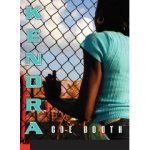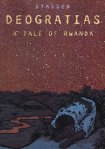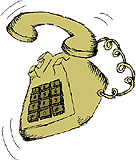YOU, the certified school library media specialist (SLMS), are the intellectual freedom expert in your school. So, one day a teacher comes to you and says, “There’s a book I want to use in my class, but it’s potentially controversial*. Should I send a permission slip home with my students?”
It may seem, on the surface, like a simple and reasonable idea, but there are some serious issues imbedded in that little question …
The First Amendment Issue
Let’s start with the broadest issue: requiring parental permission for students to read a book. In Counts v. Cedarville School District, 295 F.Supp.2d 996 (W.D. Ark. 2003), parents sued their school because they began requiring written parental permission in order for students to access the Harry Potter books. The U.S. District Court Judge in the case ruled that requiring written parental permission to access the books stigmatized the books and created a “chilling effect” which violated students’ First Amendment right to read and receive information. Yikes!
Informing Parents vs. Requesting Parent Permission
There is a huge difference between informing parents about what we are doing in school—what topics we’re covering or what books we’re reading—and asking parent permission to cover certain topics or read certain books. When we inform parents, we are behaving as professionals; remember, we are trained in both our content areas and in human growth and development to determine what is developmentally appropriate and pedagogically sound. When we ask parent permission—to cover certain content or read certain books—we give up that professionalism. Requesting parent permission should be reserved for those special activities that are not part of the typical school day, e.g. field trips and after school athletics; that require contractual agreements, e.g. Acceptable Use Policy; or that involve student privacy or other rights, e.g. publishing student work or photos. Parents expect us to be professionals, teachers who do our jobs delivering curriculum in an age appropriate and pedagogically sound manner.
Parental Rights & Responsibilities
The Protection of Pupil Rights Amendment (PPRA) affords parents the right to “inspect, upon request, any instructional material used as part of the educational curriculum for students”. Parents also have the right to request reconsideration of instructional materials. In both of these cases, it is the responsibility of the parents to request to inspect instructional materials or to file the complaint requesting reconsideration of instructional materials. It is not the responsibility of the teacher to seek out parental permission for using certain instructional materials.
So, here’s how I would answer the teacher’s question …
“There is no law or policy that requires you to get parental permission to use a certain book as part of your curriculum, but I think it’s a great idea to inform parents about what activities you’re planning, what books you’ll be reading, etc.”
“If you’re concerned about some aspect of the book, though, let’s prepare a Book Rationale. It might help you rest easier. Even though you probably won’t need it, it will help you clarify why—the age appropriateness, the pedagogical reasoning, the professional recommendations—you chose that particular book. And I’d be happy to help you prepare that Book Rationale …”
Ta-da! You’ve just made a friend!
Enjoy the start of a new school year.
(* Every book is potentially controversial…)



 Book Rationale for
Book Rationale for 